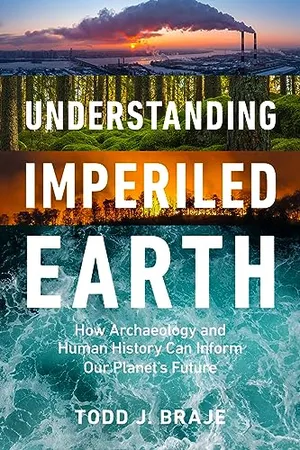A unique introduction to how understanding archaeology can support modern-day sustainability efforts, from restoring forested land to developing fire management strategies
An essential and hopeful book for climate-conscious readers
The world faces an uncertain future with the rise of climate change, biodiversity loss, deforestation, overfishing, and other threats. Understanding Imperiled Earth meets this uncertainty head-on, presenting archaeology and history as critical guides to addressing the modern environmental crisis.
Anthropologist Todd J. Braje draws connections between deep history and today's hot-button environmental news stories to reveal how the study of the ancient past can help build a more sustainable future. The book covers a diverse array of interconnected issues, including:
- how modern humans have altered the natural world
- conservation work of Indigenous communities
- extinction of megafauna like dire wolves and woolly rhinoceros
- the risk of deforestation highlighted by Notre Dame's destruction
- the extinction crisis reflected by endangered bird species in Hawai'i
- fish scarcity driving demand and price, like the single blue-fin tuna fish that sold for three million dollars
- importance of "action archaeology"
Braje examines how historical roots offer a necessary baseline for a healthier Earth, because understanding how the the planet used to be is fundamental to creating effective restoration efforts moving forward through urban forests, sustainable food webs, and more. Understanding Imperiled Earth offers an illuminating, hopeful, and actionable approach to some of the world's most urgent problems.
